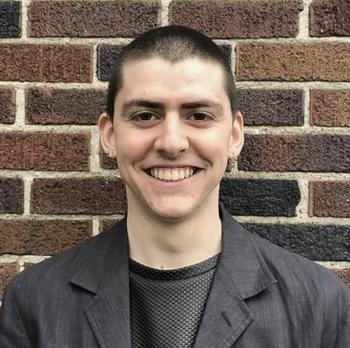Daniel Janini, PhD

Neural Dynamics of Visual Cognition
Alexander von Humboldt fellow
Room JK 25/232
14195 Berlin
Personal Profile
Daniel Janini joined the lab in January 2024. He obtained his PhD in Psychology from Harvard University where he worked with Dr. Talia Konkle in the Vision Sciences Laboratory. He first began studying visual perception prior to graduate school when he worked with Dr. Chris Baker as a research assistant at the National Institutes of Health. Prior to that, he received a BS in Biology and BA in Cognitive Science from Case Western Reserve University. There he studied cortical plasticity in the context of stroke and spinal cord injury with Dr. Ela Plow. His current postdoctoral fellowship is funded by the Alexander von Humboldt Foundation.
In his free time, he enjoys listening to techno music, reading, and going to art museums.
See my CV.
General research interests
I study the algorithms of the mind that enable us to see the world in rich visual detail. My research approach combines behavioral experiments, neuroimaging techniques, and computational modeling with deep neural networks. My research is funded by the Alexander von Humboldt Foundation from January 2024 - December 2025.
Currently, I am focusing on debates about domain specialization in the visual system. The human visual system supports a wide variety of behaviors including object categorization, reading, numerical estimation, and detecting social interactions. To what extent does the visual system have generic representations which support a variety of tasks? Alternatively, when does the visual system have specialized representations learned in service of a specific task? I have investigated this question with behavioral experiments, neuroimaging, and deep learning models. With this approach, I am finding that general-purpose visual representations can account for human perception in a variety of behavioral tasks including letter categorization and numerical estimation.
Ongoing research projects
Project 1: Investigating the emergence of category selectivity from domain-general learning algorithms
Researchers have long debated the origins of category-selective visual cortex. Recently, some have argued that face- and scene-selective cortex may naturally emerge from contrastive self-supervised learning instead of domain-specific learning objectives (Prince, Alvarez, and Konkle, 2023). I am creating a battery of tests for models of the FFA and PPA based on the fMRI literature. I ran replication fMRI experiments for these tests, characterizing the FFA and PPA’s distinct feature tuning. I am now applying this test battery to self-supervised vision models. I am finding that face- and scene-selective features in these models naturally exhibit many of these effects. However, no self-supervised model shows full correspondence with the brain, and the test battery reveals specific rooms for improvement in future models.
Project 2: Maximizing reliability of condition rich fMRI studies.
In another project, I am conducting research on fMRI methods. There is growing demand for large-scale fMRI datasets which can be used to compare the human visual system to neural network models. Ideal fMRI datasets would reliably measure how much each voxel of the visual system responds to each image in a large image set. However, choosing the ideal study design is hard, because different researchers use different designs when presenting images to participants, and it is not clear which choices allow for the most reliable data measurement. I am collecting fMRI data with multiple designs, and then using reliability and decoding analyses to determine which designs yield data with the most reliable information. Large scale datasets require large investments of time and money, so the goal of this project is to make sure we are getting the most reliable data we can when we spend all this effort.
Student supervision & opportunities
I am currently recruiting a Master’s student or research assistant to collaborate on Project 2. I am looking for a researcher with coding experience (Python and/or Matlab) who is interested in gaining experience with neuroimaging methods. If you are interested, then email me at janini@zedat.fu-berlin.de with a short introduction and your resume or CV.